Planets
-
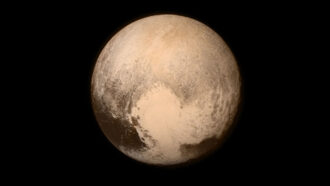 Planets
PlanetsLet’s learn about Pluto
Once known as a pipsqueak planet, Pluto is now the solar system’s best known dwarf planet.
-
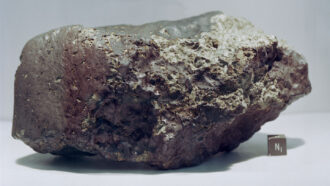 Planets
PlanetsNo, organic molecules alone don’t point to life on Mars
These carbon-based molecules, found in a meteorite, may reflect merely a mixing of water and minerals on the Red Planet over billions of years.
By Nikk Ogasa -
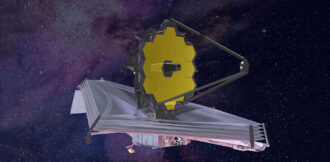 Space
SpaceThe long-awaited James Webb Space Telescope has a big to-do list
The James Webb Space Telescope has been in the works for so long that new fields of science have emerged for it to study.
-
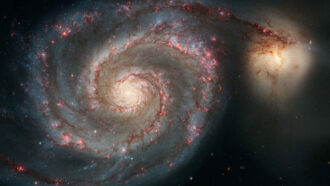 Space
SpaceAstronomers may have found first known planet in another galaxy
The spiral-shaped Whirlpool galaxy may be home to the first planet spotted outside our own Milky Way galaxy.
-
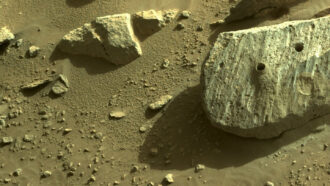 Planets
PlanetsNASA’s Perseverance rover grabbed its first Martian rocks
Two finger-sized pieces of stone drilled from a basalt rock are the first bits of Mars ready to be brought to Earth.
-
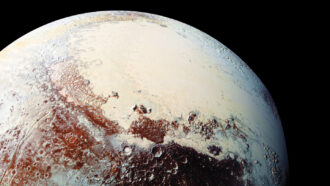 Planets
PlanetsPluto is no longer a planet — or is it?
In the 15 years since Pluto lost its status as a planet, some scientists continue to use whatever definition works best for them.
-
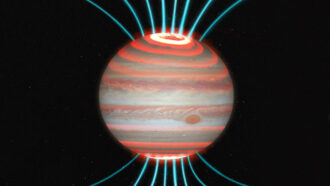 Planets
PlanetsJupiter’s intense auroras heat up its atmosphere
Jupiter’s hotter-than-expected upper atmosphere may be warmed by charged particles slamming into the air above the poles.
By Sid Perkins -
 Space
SpaceThis image may be the first look at exomoons in the making
These observations offer some of the best evidence yet that planets around other stars have moons, or exomoons.
-
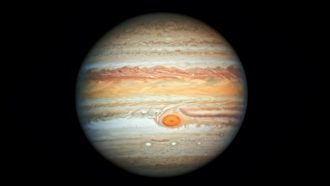 Space
SpaceBorn in deep shadows? That could explain Jupiter’s strange makeup
Dust that blocked sunlight might have caused the gas giant to form in a deep freeze, a new study suggests.
By Ken Croswell -
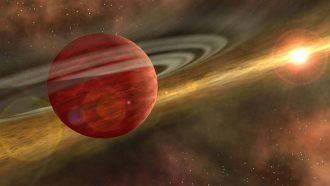 Planets
PlanetsThe pebbled path to planets
Small pebbles zipping through a sea of gas may give rise to mighty planets.
-
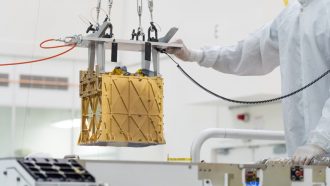 Planets
PlanetsThe Perseverance rover split CO2 on Mars to make breathable air
This oxygen-making experiment shows that astronauts could one day make air to breathe and to help fuel their ride back home.
-
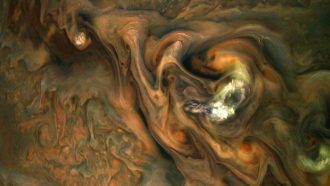 Space
SpaceRaindrops on alien worlds will obey Earth-like rules
Their size will be similar no matter what they’re made of or on which planet they fall, a new analysis finds.